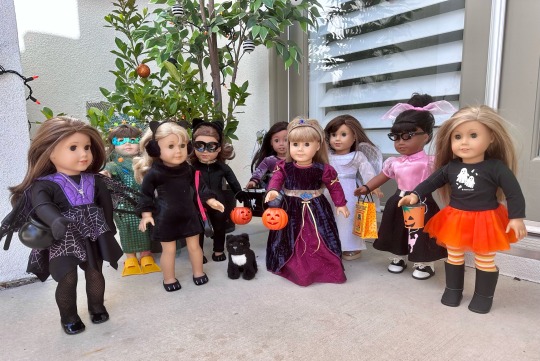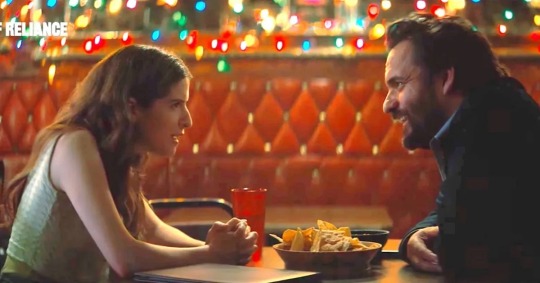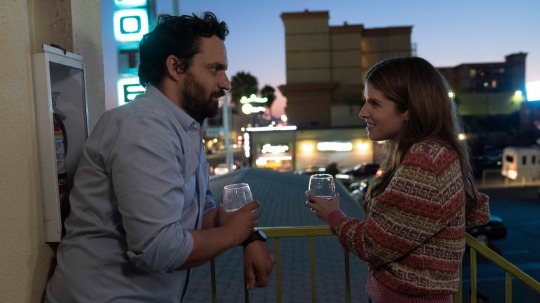#Thomas Kendrick
Explore tagged Tumblr posts
Text
A contribution.

#faith the game#faith the unholy trinity#indie horror#pixel horror#faith airdorf#faith unholy trinity#faith game#faith: the unholy trinity#father ward#faith john ward#john thomas ward#john faith#john ward#kendrick lamar#edit#shitpost
188 notes
·
View notes
Text
Don't know if this headcanon exists.
But Duke Thomas introduces Jason Todd to Kendrick Lamar.
Duke doesn't realize the feral monster he's created until Jason is blasting every single one of his albums at max volume and analyzing every single lyric to understand the deep meanings of each song at 3 A.M.
61 notes
·
View notes
Text

#duke thomas#the signal#signal#signal dc#Batman#cage the elephant#dayglow#kendrick lamar#David Bowie#Bowie#d4vd
21 notes
·
View notes
Text
Source: bloodlustmelody
God why is he so *tearing about the nearest object with my teeth and claws like a rabid dumpster raccoon*
#maneskin#måneskin#damiano david#må#thomas raggi#damiano#damiano maneskin#victoria de angelis#damiano måneskin#måneskin damiano#maneskin damiano#ethan torchio#kendrick lamar
67 notes
·
View notes
Text

What can I say, I'm just really invested in the Olympics this year. 😌💃🔥
#olympics#olympic games#paris olympics#paris 2024#olympic swimming#olympic gymnastics#olympic volleyball#olympic diving#olympic high jump#olympic pole vault#male athlete#male aesthetic#hot male#sexy male athletes#sexy males#water polo#track and field#tennis#carlos alcaraz#gianmarco tamberi#sam kendricks#karsten warholm#matt anderson#thomas ceccon
42 notes
·
View notes
Text


18 years ago today Class of 3000 premiered on Cartoon Network!!!
THIS WAS MY SHOW!!🤩🤩🤩
#class of 3000#cartoonetwork#André 3000#Thomas W. Lynch#Patric M. Verrone#Joe Horne#André 3000 Benjamin#Kevin Kendrick#Pat Irwin#Jennifer Hale#Tom Kenny#Phil LaMarr#Janice Kawaye#Jeff Bennett
14 notes
·
View notes
Text
Duel of the American Girl Dolls: Girl of the Year: Pets (Round 1)


This is a poll in the Duel of the American Girl Dolls. Other polls can be found here
#duel of the american girl dolls#american girl#american girl doll#american girl dolls#polls#dolls#doll#doll collector#doll collection#doll community#dollcore#fashion dolls#truly me#doll accessories#plushies#girl of the year#grace thomas#joss kendrick
8 notes
·
View notes
Photo


Sparks: Pulling Rabbits Out Of A Hat
Repertoire Records REP 2410, 2021
Originally released: June 1984
#meine photos#vinylcollection#1984 music#coloured vinyl#sparks#ron mael#russell mael#leslie bohem#bob haag#david kendrick#john thomas#vinylcommunity
13 notes
·
View notes
Text

By: Thomas Chatterton Williams
Published: May 19, 2024
We’d gathered that day at the cafeteria’s “Black” table, cracking jokes and philosophizing during the free period that was our perk as upperclassmen. We came in different shades: bone white, tan and brownish, dark as a silhouette. One of my classmates, who fancied himself a lyricist, was insisting that Redman, a witty emcee from nearby Newark, New Jersey, was the greatest rapper ever. This was the late ’90s, and for my money, no one could compete with Jay-Z. I said so, and the debate, good-natured at first, soon escalated in intensity, touching on feelings and resentments that ran far deeper than diverging claims about artistic merit.
“How can you even weigh in?” I still remember the kid fuming. “You ain’t even the pure breed!”
With that, there was nothing left to say. Friends separated us, the bell rang, and I headed home. A short time later, I went off to college, where I would meet a wider assortment of Americans than I had realized existed. But over the years, I have been reminded of that boy’s slicing racism, the lazy habit of mind that required no white people to be present but would nonetheless please the most virulent white supremacist.
Recently, two public controversies spirited me back to the suspicion and confusion of my high-school cafeteria. All spring long, an unusually nasty feud between the rappers Drake and Kendrick Lamar has been captivating audiences, both for the quality of the music it has engendered and for the personal and malicious dimensions of the attacks it has countenanced. Much has been written about the fight, in particular about the two men’s treatment of women, which I won’t rehash here except to point out that it’s a little funny that they both portray themselves as enlightened allies while also acting as if the ultimate disparagement is to call another man feminine. Less has been said about the potency of the racial dimension, which feels like a throwback to a time before Drake’s pop-culture dominance—indeed, to a time before the historic hybridity of the Obama era—and like a distillation of the skin-deep racialism of the current social-justice movement.
Drake, who grew up in Toronto, is the son of a white Jewish mother from Canada and a Black father from Memphis. Since the release of his 2009 mixtape, So Far Gone, he has been not only the most successful visibly mixed-race rapper—and arguably pop star—but also the most visible Black male musician for some time now. Anyone at the top will attract criticism. But not even a white rapper like Eminem has been subject to the kind of racial derogation that has been hurled at Drake.
Back in 2018, the rapper Pusha T released a diss track about him for which the cover art was an old photograph of Drake performing in a cartoonish blackface. The image makes you cringe, but—as Drake explained—that was the point. Drake began his career as an actor, and he wrote that the photograph was part of a “project that was about young black actors struggling to get roles, being stereotyped and typecast … The photos represented how African Americans were once wrongfully portrayed in entertainment.” But presented without context, it appeared to be a self-evident statement of inauthenticity.
Another rapper, Rick Ross, calls Drake “white boy” again and again in his song “Champagne Moments,” released in April. In an op-ed for The Grio, the music journalist Touré explains why the insult is so effective: “We know Drake is biracial. He’s never hidden that, but many of us think of him as Black or at least as a part of the culture … On this record, Ross is out to change that.” Touré calls this “hyperproblematic,” but his tone is approving—he admires the track. “We shouldn’t be excluding biracial people from the Black community, but in a rap beef where all is fair as a way of attacking someone and undermining their credibility and their identity, it’s a powerful message.”
In a series of more high-profile records, Lamar has built on Ross’s theme, both implying and stating directly that racial categories are real, that behaviors and circumstances (like Drake’s suburban upbringing) correlate with race, and that the very mixedness of Drake’s background renders him suspect. It is an anachronistic line of ad hominem attack that is depressing to encounter a quarter of the way into the 21st century.
Lamar’s most recent Drake diss is called “Not Like Us,” and reached No. 1 on Billboard Hot 100. It goes after Drake’s cultural affiliations with the American South. “No, you not a colleague,” Lamar taunts. “You a fucking colonizer!”
It’s hard to hear that and not remember that Drake’s mother is Jewish, and that this is the same invective used to undermine Jews’ sense of belonging in Israel. Such racist habits of thought have become potent rhetorical weapons in the progressive arsenal.
The second (if smaller) controversy followed an essay on language and protest published in The New Yorker earlier this month. The novelist Zadie Smith, who is of European and African descent, argued—carefully—that it is too simplistic to regard the world as sortable into categories of oppressor and oppressed. “Practicing our ethics in the real world involves a constant testing of them,” she writes, “a recognition that our zones of ethical interest have no fixed boundaries and may need to widen and shrink moment by moment as the situation demands.” This was an attempt to take seriously the tangible fate of Hamas’s victims on October 7, the broader implications of anti-Semitism that can at times be found in criticism of Israel’s response, and the ongoing tragic loss of Palestinian life.
Despite praising the protests that have engulfed college campuses and describing a cease-fire in Gaza as “an ethical necessity,” Smith was derided on more than intellectual grounds. One widely shared tweet, accompanied by a photo of Smith, stated the criticism plainly: “I feel like Zadie Smith uses black aesthetics to conceal her deeply pedestrian white middle-class politics. People see the head wrap and the earrings made of kente cloth and confuse that for something more substantive.”
This was not the first time Smith had been regarded as a racial interloper. The author Morgan Jerkins once wrote of the emotional “hurt” she felt reading another thoughtful essay Smith published in Harper’s asking “Who owns black pain?” Smith’s transgression here, according to Jerkins, was “intellectualizing blackness” from a distance instead of feeling it. “Do not be surprised,” Jerkins warned, “if a chunk of that essay is used in discussions as to why biracial people need to take a backseat in the movement.”
The retrograde notion that thought and action necessarily flow from racial identities whose borders are definable and whose authority is heritable is both fictitious and counterproductive. “Something is afoot that is the business of every citizen who thought that the racist concepts of a century ago were gone—and good riddance!” Barbara and Karen Fields write in their 2012 masterpiece, Racecraft: The Soul of Inequality in American Life. “The continued vitality of those concepts stands as a reminder that, however important a historical watershed the election of an African-American president may be, America’s post-racial era has not been born.”
Of course, the first African American president was, like our nation and culture, himself both Black and white. One of the most disappointing—and, I have come to realize—enduring reasons the “post-racial era” continues to elude us is that it is not only the avowed racists who would hold that biographical fact against him.
==
This is why we call it neoracism, not "antiracism."
#Thomas Chatterton Williams#biracial#mixed race#racial identity#neoracism#antiracism#antiracism as religion#racialism#Drake#Kendrick Lamar#religion is a mental illness
12 notes
·
View notes
Text

Trick or Treat!
The girls are ready to fill their buckets and bags with Halloween treats and they may just have a few tricks up their sleeves too.
Close ups to come 🎃🦇🐈⬛👑🧜♀️🧚♀️🐩👼
#american girl#pleasant company#halloween costumes#black cat#nanea mitchell#melody ellison#joss kendrick#American girl of today#isabelle palmer#Rebecca Rubin#grace thomas#lanie holland
31 notes
·
View notes
Text



“If Madeline dies, I’m gonna fucking kill Andy Samberg!”
19 notes
·
View notes
Text
It's A Roleplaying World
Muses:
Good Omens:
Anthony J. Crowley
Anathema Device
Newton Pulsifer
Gabriel (preferably as Jim/Jim style)
(Note: Will strongly play characters in the style of TV show)
Little Shop Of Horrors:
Seymour Krelborn
(Note: Will strongly play character in style of 1986 movie. Flexible with 2003 musical or 2019 musical)
Les Misérables:
Marius Pontmercy
Cosette Fauchelevent
Éponine Thénardier
(Note: Will strongly play characters in the style of 2012 movie. Also open to musical styles)
BBC Ghosts:
Thomas Thorne
The Last Of Us:
Joel Miller
Ellie Williams
(Note: Will play in style of TV show)
The Queen's Gambit:
Beth Harmon
D.L Townes
(Note: Will play in style of TV show)
Deadwater Fell:
Tom Kendrick
Kate Kendrick
Jess Milner
Lempicka:
Tadeusz Lempicki
Tamara de Lempicka
Marinetti
-> I'm new to Tumblr RP, please be patient and don't be a jerk.
-> No NSFW.
-> I RP canon/canon ships, platonic ships, and am flexible with crossovers! I will only involve crossovers from fandoms listed here or from the fandoms on my main (if they are active for me).
-> No OCs, please.
-> Muses and muse fandoms are subject to change, disappearance/lack of motivation, and/or alteration at any point.
-> Message me first if you want to RP! This helps a lot.
-> Replies to messages and/or RPs may be slow. Please keep this in mind.
-> Enjoy the characters and RP style I have in store <3
Hold still, focus...
#roleplay#roleplay blog#rp blog#multifandom rp#muses#multi muse blog#musical rp#tamara de lempicka#tadeusz lempicki#marinetti#crowley#gabriel good omens#anathema device#newton pulsifer#seymour krelborn#seymour lsoh#marius pontmercy#cosette fauchelevent#eponine thenardier#thomas thorne#joel miller#ellie tlou#beth harmon#townes tqg#tom kendrick#kate kendrick#jess milner
3 notes
·
View notes
Text
My favorite the Scorpio Races scenes/moments that aren’t all Puck and Sean:
Tommy and Puck dancing in the living room while Gabe plays the concertina and Tommy teases her about Sean (everything about that chapter is perfect)
Holly following Sean around while he does his chores and saying he can feel god on the cliffs
Norman Falk telling Puck not to race because if she rides Dove then the races are just a horse race and Tommy’s death was for nothing (I could make an entire post about this actually, personally I think it’s one of the most important moments in the book)
Sean’s first scene in the butcher shop because it’s SUCH a good introduction to his character and the way his brain works
Holly and Puck’s first introduction and conversation outside Palsson’s. You get to see their impressions of each other when otherwise you mostly see both of them through Sean’s eyes (ok also I just love Holly. So many Holly scenes are good scenes)
Puck talking to Father Mooneyham at confession and starting to understand Gabe’s position (another pivotal moment in the book I could write a whole essay about)
#and funniest scene in the book is hands down puck and sean and thomas gratton in the truck#the awkwardness is palpable and it makes me giggle uncontrollably#the scorpio races#maggie stiefvater#puck connolly#kate connolly#sean kendrick#george holly#gabe connolly#tsr 2023
13 notes
·
View notes
Text

Manifesting a Kendrick collab!
21 notes
·
View notes
Text
Two new memes appeared in my dream last night. Had to miss my ride just to remember them.


I don’t even know the context.
4 notes
·
View notes
Text
It’s not in my nature to hate people.
I’m a very peaceful person.
Lovable, sensitive, kinda guy.
But man being a Kendrick fan and not really a Drake lover…
I’ve been listening to euphoria on repeat all week
I feel this diss in my soul
Perhaps I should be hating a bit more…
6 notes
·
View notes